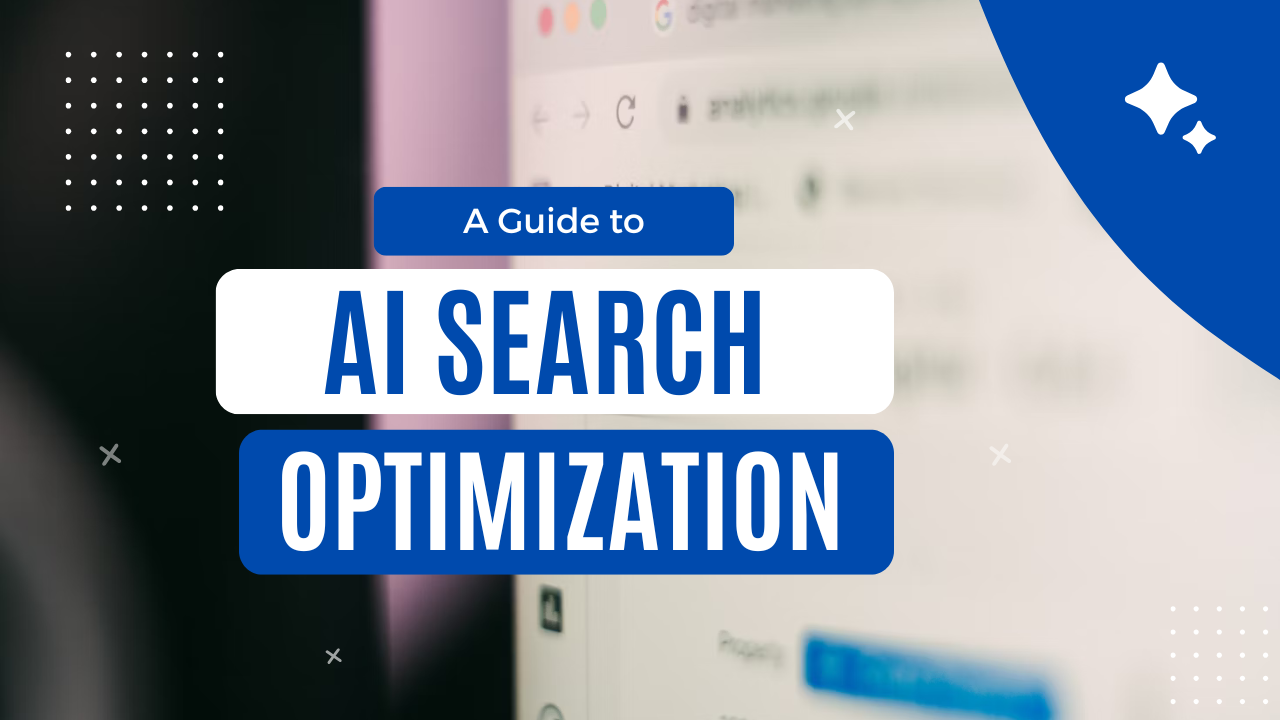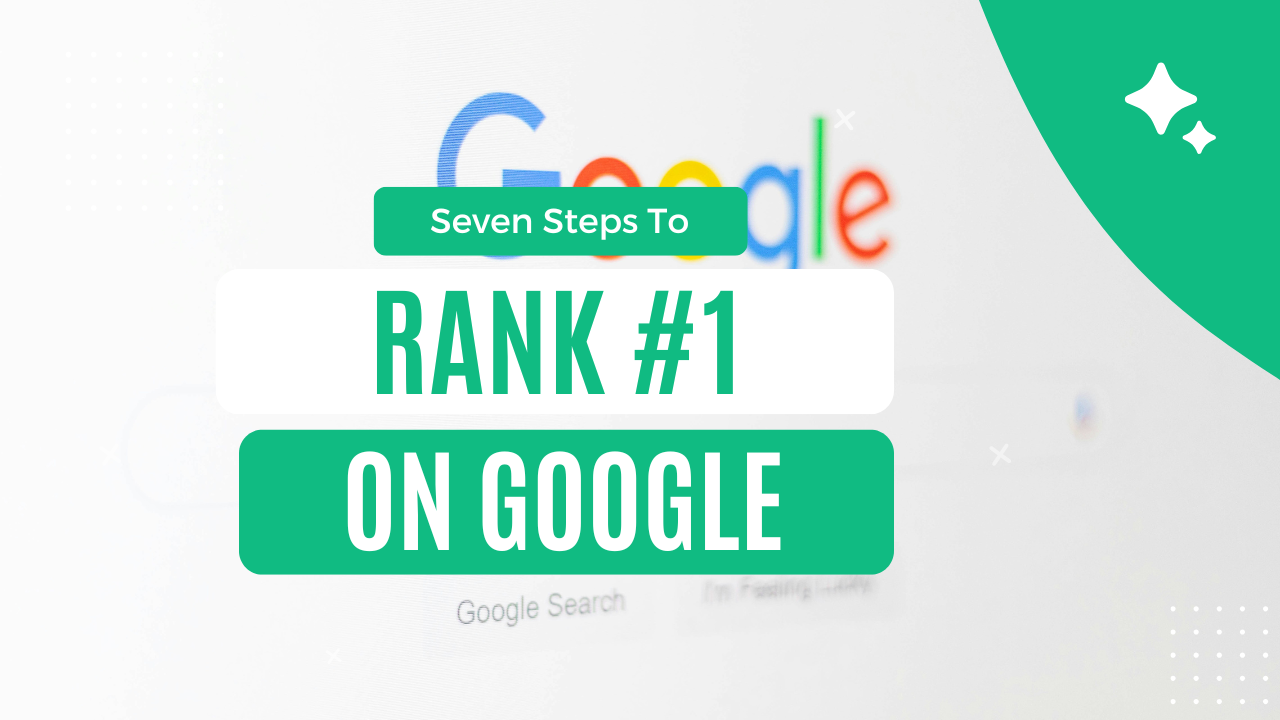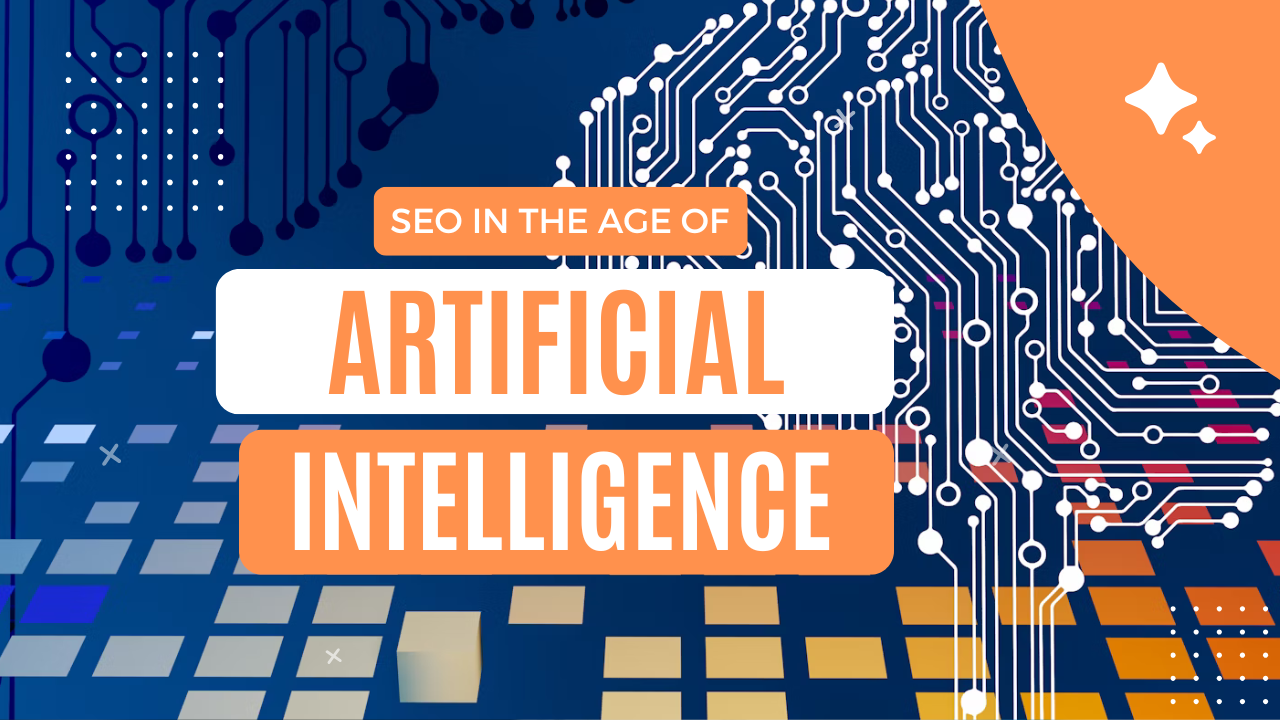The Complete Guide to AI Search Optimization: How to Rank in the Age of ChatGPT and Beyond

Table of Contents
The Complete Guide to AI Search Optimization: How to Rank in the Age of ChatGPT and Beyond
The landscape of search is undergoing a fundamental transformation. As AI-powered search tools like ChatGPT, Perplexity, and Google’s AI Overviews become mainstream, traditional SEO strategies are no longer sufficient. Businesses that adapt to this new reality will thrive, while those that don’t risk becoming invisible in search results.
This comprehensive guide will show you exactly how to optimize for AI search and position your brand for success in the age of artificial intelligence.
Why AI Search Changes Everything
Unlike traditional search engines that display a list of links, AI search tools provide direct answers by synthesizing information from multiple sources. This fundamental shift means that being ranked #1 on Google no longer guarantees visibility if an AI tool doesn’t recommend your content.
The implications are profound:
- Reduced click-through rates from traditional search results
- Increased importance of brand mentions across the web
- New content quality standards that prioritize expertise and originality
- Different optimization strategies focused on AI consumption
1. Content Structure for AI Consumption
AI tools excel at processing well-structured, comprehensive content. To optimize for AI search, your content needs to be easily digestible by these systems.
Essential Content Elements
Intro paragraphs that provide clear summaries
Your opening paragraphs should immediately establish what the content covers and why it matters. AI tools often pull from these sections to create their responses.
First-hand experience and expertise
Generic, thin content won’t get recommended because AI tools can generate that themselves. What works is content demonstrating genuine expertise, like detailed product testing, original research, statistics, and data that AI cannot produce independently.
Successful content often includes:
- Author credibility and background information
- “Why you should trust us” sections
- In-depth research and analysis
- Regular updates and maintenance
- Multiple content types (videos, articles, discussions)
In essence, you really need to focus on creating content that really helps the reader achieve a goal and do everything possible to make this happen. For example, if you’re writing a blog post on the best hiking gear, include expert reviews, user testimonials, and detailed product comparisons to provide comprehensive information. This not only boosts your visibility in AI search results, but also builds trust with your audience.
2. Brand Mentions and Sentiment Management
This is perhaps the most overlooked aspect of AI search optimization. AI tools pull from numerous sources to create recommendations, including high-authority publications, user-generated content sites like Reddit and forums, and brand websites.
When these tools research a product or service, they’re analyzing sentiment, reviews, and recommendations across the entire web. They identify common threads and features that consistently appear across different sources.
The key insight: Your brand needs to be consistently mentioned and positively reviewed across multiple platforms for AI tools to build confidence in recommending you.
3. The Importance of Clear Brand Positioning
Unlike traditional SEO where ranking at the top was sufficient, AI search requires crystal-clear brand positioning. Businesses must be explicit about what they want to be known for.
In traditional SEO, you could succeed simply by ranking for “kids backpack” without differentiating yourself. In AI search, you need to give AI tools clear reasons to recommend you over competitors. This positioning must be consistent across all online mentions.
4. Monitoring and Measuring AI Search Performance
AI search requires new measurement approaches since answers are generated dynamically rather than displaying fixed rankings. Tools like SEMrush’s AI toolkit provide insights into:
- Performance across different AI platforms (ChatGPT, Perplexity, etc.)
- Market share against competitors
- Brand sentiment analysis
- Strategic opportunities for improvement
- Content gap identification
These tools offer three types of reports:
- Business Landscape: Competitive positioning and market analysis
- Brand and Marketing: Messaging and positioning insights
- Audience and Content: Content strategy recommendations
5. The Evolving Role of Digital Marketers
AI search optimization is transforming the role of digital marketers. Instead of just focusing on keywords and rankings, marketers now need to:
- Analyze customer sentiment across platforms
- Identify business improvement opportunities
- Influence product development based on AI feedback
- Bridge the gap between marketing insights and business strategy
This evolution makes marketers more valuable to organizations by providing actionable insights that extend beyond traditional marketing metrics.
Getting Started with AI Search Optimization
Immediate Actions:
- Audit your current search rankings and content quality
- Optimize content structure for AI consumption
- Develop clear brand positioning and messaging
- Monitor brand mentions across the web
- Implement AI search monitoring tools
Long-term Strategy:
- Build relationships with industry publications for coverage
- Encourage positive user-generated content
- Consistently reinforce your brand’s key differentiators
- Continuously test and refine your approach
The Changing Landscape of SEO in 2025 and Beyond
SEO is no longer just about keywords; it’s about understanding user intent and behavior. As we move forward, voice search, semantic SEO, AI, and mobile-first indexing will redefine the rules. Businesses must ask, “How do we adapt to this new SEO landscape?”
Embrace Automation To Make Your Life Easier
AI isn’t just a buzzword—it’s the backbone of future content strategies. To thrive, businesses must integrate AI tools that automate content creation, personalization, and distribution. AI-powered platforms streamline processes, allowing for rapid content generation that is tailored to individual user preferences.
Semantically Related Keywords
Semantically related keywords are words and phrases that are conceptually connected to the main keyword. They enrich the context and depth of content, helping search engines like Google understand the material’s relevance and intent better.
Imagine a tapestry where each thread, though distinct, contributes to a larger picture. In content strategy, these threads are your semantically related keywords, weaving together to form a cohesive narrative that resonates with search engine algorithms and human readers alike.
Why Are They Essential?
Let’s face it, the days of keyword stuffing are long gone. Today, search engines prioritize content that offers real value and context. Semantically related keywords are crucial because they:
Enhance Content Relevance: By incorporating a broader range of related terms, your content becomes more comprehensive. It’s akin to having a conversation with someone who doesn’t just nod along but adds meaningful insights.
Improve Search Engine Rankings: Search engines have become adept at understanding natural language. They reward content that reflects the intricacies of human communication, which semantically related keywords facilitate.
Boost User Engagement: When users find content that speaks their language—addressing their queries and concerns—they stay longer, engage more, and are more likely to convert. Semantically related keywords help you speak that language fluently.
How to Implement Semantically Related Keywords
So, how do you weave these keywords into your content strategy? Here are some actionable steps:
-
Research and Discover: Use AI-powered tools to identify semantically related keywords. These tools analyze vast amounts of data to suggest terms that enhance your content’s depth and relevance.
-
Integrate Naturally: Rather than forcefully inserting keywords, ensure they flow naturally within your content. This not only improves readability but also aligns with search engine expectations. Think of it as writing a letter to a friend—informative yet conversational.
-
Analyze and Iterate: Content strategy is never a one-and-done task. Regularly review your content’s performance, tweak your keyword strategy as needed, and stay updated with SEO trends.
The Future is Now
The transformation to AI search is accelerating, and businesses can no longer afford to ignore this shift. While informational organic traffic may decline, companies that successfully optimize for AI search often see increases in branded traffic as users research through AI tools then seek out specific brands.
The key is not to panic but to adapt quickly. The same number of purchases will still occur online; they’ll just be influenced by AI recommendations rather than traditional search results.
For businesses ready to embrace this change, the opportunity is substantial. Those who master AI search optimization while their competitors lag behind will capture a disproportionate share of this new search landscape.
Conclusion
Traditional SEO, while still important, cannot solely guarantee optimal visibility. Businesses need to adapt by optimizing for AI search, focusing on content structure, and managing brand mentions effectively. Those who embrace this shift and harness AI’s potential will have a competitive edge, ensuring their content is not only discovered but also recommended.
There’s no time to delay; the future of SEO is here, and it’s AI-driven.
The age of AI search is here. The question isn’t whether to adapt, but how quickly you can get started.
George Field
Founder & CEO at Seio
George is an entrepreneur with over 12 years of experience in digital marketing and SEO. He has successfully launched multiple businesses and created high-performing SEO campaigns. As the founder of Seio, George combines his deep understanding of search algorithms with cutting-edge AI technology to help businesses dominate their markets through strategic content creation.
Related Articles
Continue reading with these related posts

Most people think ranking #1 on Google is all about SEO—and while that's part of the puzzle, it's far from the full picture. In 2025, you need a complete strategy that goes beyond basic optimization.

For the past 17 years, I've helped generate hundreds of millions of visits from Google search. But for the first time ever, I'm questioning everything I know about SEO.